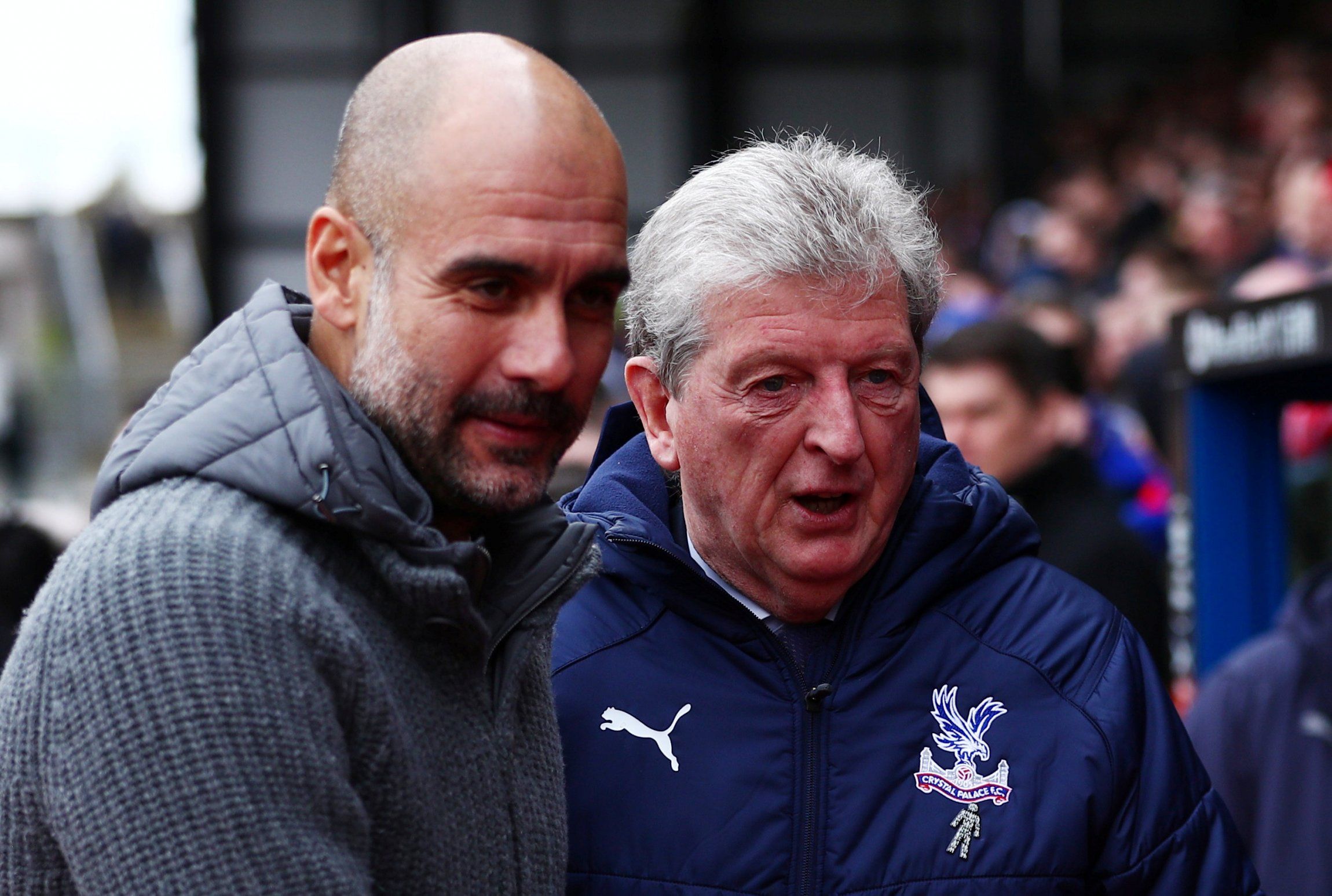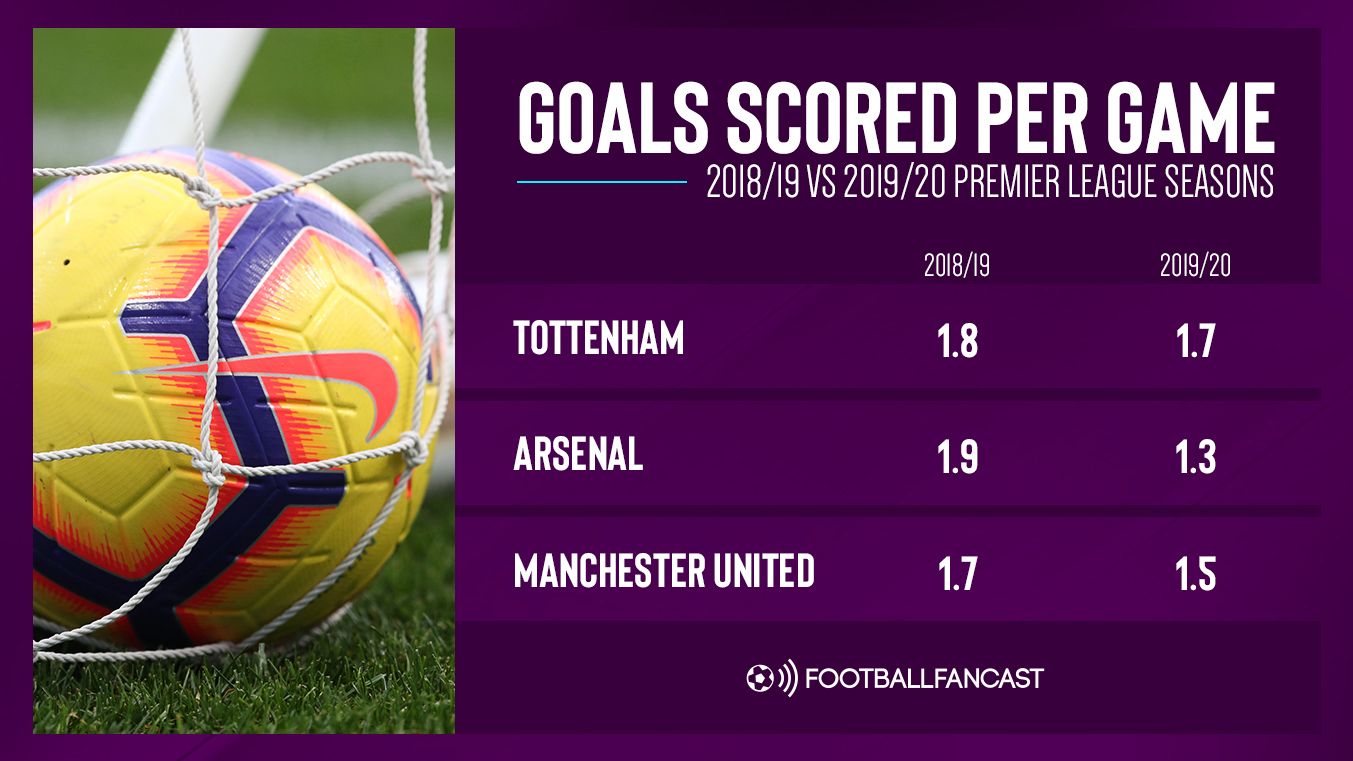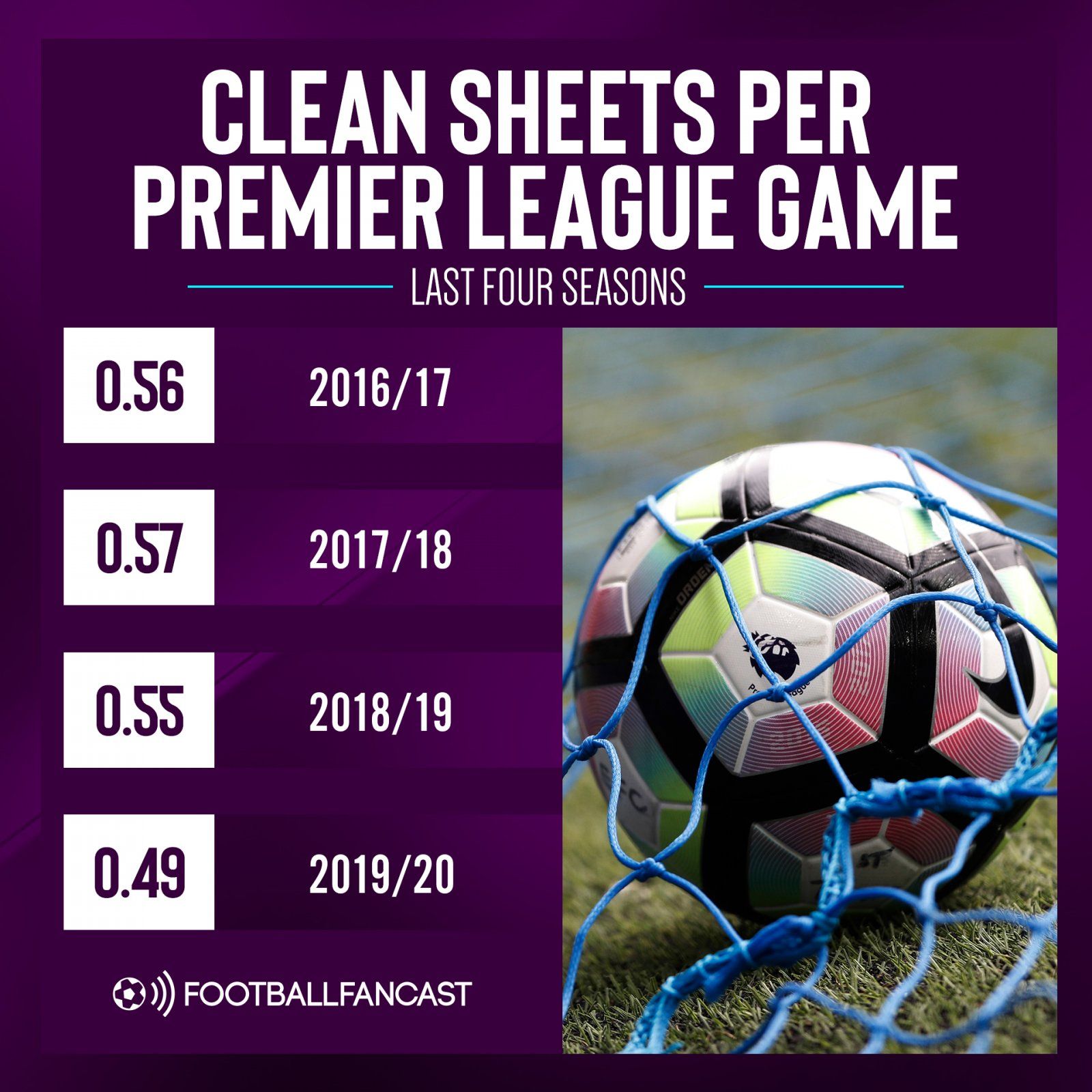In the land of the blind, the one-eyed man is king. And in the land of Premier League football, those who can defend reign supreme over those who can’t.That probably seems like an out-of-touch, Allardycian declaration, because this feels like a season defined by firepower and a collective emphasis on attractive football, following another campaign in which English football's top teams scored a combined 184 Premier League goals.And if rock bottom Norwich City are the worst team in the division this year, then clearly its attacking ideals are in rude health - should current rates be sustained, they’ll be the first bottom-placed team to produce more goals than games played since QPR in 2014/15.Meanwhile, Brighton have swapped an attritional manager in Chris Hughton for a more expansive one in Graham Potter, only the Big Six, Leicester and Wolves have scored more than newly-promoted Aston Villa and speaking of the Foxes, they’re just three goals shy of European champions Liverpool.
"There is a sense that Guardiola’s ideas, in particular, have resonated far beyond the Etihad Stadium. He has been credited with inspiring a cultural shift across English soccer, one that has encouraged even the likes of Rochdale to envisage a style based on more than 'slogging it forward'."
Rory Smith - New York Times
The perceived wisdom is that Pep Guardiola’s influence on English football, leading Manchester City to a record-breaking number of goals and points in 2017/18 by constructing an overtly attacking team, has trickled down throughout the football pyramid, to the point where even the clubs emerging from the Championship want to employ their own interpretation of Guardiola-ball.
And yet, statistically speaking, the Premier League as a total package hasn’t changed at all from last season. The average remains 2.8 goals per game, the same level it has been barring second decimal points in three of the last four seasons - the exception being a slight dip to 2.7.
The mentality shift is clear to see - back in 2017/18, not a single club in the bottom six finished the season with an average of one goal per game or better - but the new attacking focus of clubs at the lower end of the Premier League is being offset by the ineptitude of the teams supposed to be at the top.
Manchester United, Arsenal and Tottenham, who find themselves marooned between fifth and tenth, have all averaged less goals per game this season. In fact, Arsenal’s average alone has dropped by a staggering 0.6 - that’s 23 less goals across the whole campaign.
The level of goals in the Premier League remains the same, but they’ve ended up being more spread out and because of that, it’s not actually the goalscoring teams who are ultimately benefiting from the psychological shift Guardiola has created - it’s the teams who can keep the ball out at the other end.
The number of clean sheets has dropped below 0.5 per game in the Premier League this season for the first time in the last four years, and while a 0.6 decrease from last term’s 0.55 may not seem like all that much, the teams who stand out most in the Premier League table make that statistic incredibly telling.
How much do you remember about football in 2019? Our quiz will test your knowledge...
Indeed, amid the furore of mid and lower table teams all trying to stick the ball in the net as much as possible, it’s the two clubs with the lowest number of goals conceded that are enjoying the strongest seasons, Sheffield United and Crystal Palace in eighth and ninth respectively, despite scoring amongst the fewest times of any club in the division.
What else do these two teams have in common? They average less than 50% possession, they rank in the Premier League’s bottom half for goals scored in open play, they have a goal difference - whether negative or positive - in single digits, between +2 and -4, and they have kept at least six clean sheets, something only eight Premier League sides have done in total.
Palace and the Blades come with their own idiosyncrasies - Chris Wilder adopts a back three, while Roy Hodgson never veers away from a flat back four - but at the heart of all of them both is a level of organisation, familiarity and discipline that guarantees defensive solidity.
And the correlation between that and league position is impossible to ignore. Palace are in ninth place despite scoring the second-fewest goals of any Premier League side, whereas Sheffield United’s 23 scored is worsened by only five teams in the division. Compare that to Aston Villa in 17th with 27 goals - 8 more than Palace - or West Ham in 16th with 25 goals, or even Arsenal in 10th with 28.
The same effect is reflected elsewhere in the table too; Manchester City are the division’s top scorers with 56 but find themselves behind Liverpool and Leicester, who have both conceded less goals and kept more clean sheets.
Of course, that doesn’t mean the same effect is working for everybody; Burnley, a true bastion of old-fashioned football who share many philosophical characteristics with Palace and Sheffield United, have ended up conceding 34 times, leaving them just four points off the relegation zone. Likewise, Watford, the lowest scorers in the Premier League, are stuck in second-bottom.
Yet, the overall message still stands out; the Premier League table is taking shape by separating the clubs that can do what the others can’t, not by how well they can all do the same thing.
Ultimately, the Premier League’s Guardiola-inspired lust for exciting, expansive football has become a leveller that puts teams on incredibly even terms, especially when the stagnation of its top clubs are thrown into the equation as well.
And when pretty much every team has the ability to consistently score goals, it’s actually the ones who defend the best who are reaping the rewards. If Palace and Sheffield United don't provide enough evidence of that, perhaps this simple fact does: top-place Liverpool and rock-bottom Norwich haven't scored the most or the fewest goals, but they have conceded the least and the most respectively.
In the land of the blind, the one-eyed man is king.




